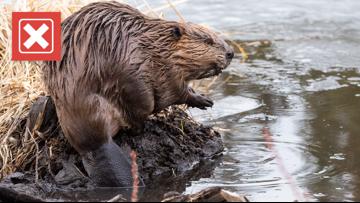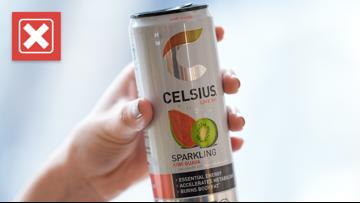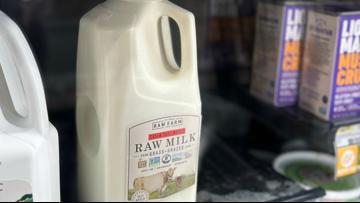Many coffee lovers drink the typically caffeinated beverage to wake them up in the morning or as a midday pick-me-up.
But some people, such as those with caffeine sensitivity or individuals who simply like the taste of coffee but not the buzz, prefer drinking their java decaffeinated.
Several recent headlines claim decaf coffee may soon be banned in the United States by the Environmental Protection Agency (EPA) and the Food and Drug Administration (FDA).
Online search trends show many people are wondering if decaf coffee is actually facing a proposed nationwide ban.
THE QUESTION
Is there a proposal to ban decaf coffee in the U.S.?
THE SOURCES
- Environmental Protection Agency
- Food and Drug Administration
- Centers for Disease Control and Prevention
- Occupational Safety and Health Administration
- American Chemical Society
- Environmental Defense Fund
- Clean Label Project
- National Coffee Association
- Consumer Reports
- Article by Joe Schwarcz, Ph.D., director of McGill University’s Office for Science and Society
- Alice Smith, registered dietitian and certified health coach at Alice Approved
THE ANSWER
No, there is not a proposal to ban decaf coffee in the U.S.
WHAT WE FOUND
Decaf coffee is not facing a proposed ban in the U.S. Instead, health advocacy groups are calling on the FDA to ban methylene chloride, a chemical used in one method of decaffeinating coffee, due to cancer and other health risks. The EPA banned consumer use of the chemical in April, but small amounts of it can still show up in certain decaf coffees.
Methylene chloride, also known as dichloromethane, is a colorless liquid with a mild, sweet odor that is typically used as a paint stripper and as an industrial solvent, according to the Centers for Disease Control and Prevention (CDC). The chemical may also be found in some aerosol and pesticide products. It’s also commonly used during decaffeination.
Inhaling large amounts of methylene chloride can cause people to feel unsteady, dizzy, and have nausea and a tingling or numbness in their fingers and toes, the CDC says. Those who breathe in smaller amounts of the chemical “may become less attentive and less accurate in tasks requiring hand-eye coordination,” while skin contact can cause burning and redness of the skin.
A 1986 study conducted by the National Institute for Occupational Safety and Health (NIOSH) found mice exposed to methylene chloride in the air developed lung and liver cancers and tumors. Other animal studies conducted by the EPA found similar trends.
The CDC says it does not know if methylene chloride can cause cancer in humans at this time. However, the EPA and the World Health Organization (WHO) consider the chemical to be a probable human carcinogen.
On April 30, the EPA finalized a ban on most consumer and industrial uses of methylene chloride in the U.S. But the EPA doesn’t regulate the amount of methylene chloride found in foods like decaf coffee; the FDA does. The agency limits, but doesn’t outright ban, the chemical.
Title 21 of the FDA’s Code of Federal Regulations states the amount of methylene chloride in coffee cannot exceed 10 parts per million, which is one-thousandth of a percent (0.001%). The agency maintains it is safe to consume at this minuscule amount.
There are three primary methods for removing caffeine from regular coffee beans, according to Consumer Reports. The most common method, referred to as the European Method, uses methylene chloride. Another method uses liquid carbon dioxide (CO₂) and the third method just uses water in what is known as the Swiss Water Process.
Consumer Reports explains that in each method, green, unroasted coffee beans are soaked or steamed at very high temperatures until the caffeine is dissolved or their pores are opened, and then the caffeine is extracted.
None of these methods scrubs the bean of caffeine completely, Consumer Reports notes. Most decaf coffee still has between three and 12 milligrams of caffeine per cup.
In the European Method specifically, the coffee beans are rinsed with methylene chloride, which bonds to and removes the caffeine, according to the National Coffee Association, a trade association for the U.S. coffee industry.
Joe Schwarcz, Ph.D., the director of McGill University’s Office for Science and Society, wrote in May that methylene chloride is ideal for the production of decaffeinated coffee because “caffeine is far more soluble in this solvent than the compounds responsible for coffee’s flavor.” This means the caffeine dissolves better in the chemical than in water, making it easier to remove.
“This raises the question of methylene chloride residue in the final product,” Schwarcz explained. “Since methylene chloride is very volatile and the decaffeination process involves heating the ground beans, only a trace amount remains.”
In December 2023, the Environmental Defense Fund and other health advocacy groups filed a petition to the FDA calling on the agency to stop allowing methylene chloride and three other cancer-causing chemicals in food, including decaf coffee. The petition is currently under review by the FDA.
“The FDA does not comment on petitions that are under review. The agency will publish its response to the petition in the Federal Register once its review is completed,” an FDA spokesperson told VERIFY.
If you want to know what method was used to decaffeinate your coffee brand of choice, the Clean Label Project, a national nonprofit that tested dozens of popular brands to detect the amount of methylene chloride, and Alice Smith, a registered dietitian and certified health coach, suggest looking at the label.
“There are no specific labeling rules that disclose exactly how your coffee was decaffeinated. If you want to be sure synthetic solvents were not used, look for the organic seal. The organic seal prohibits not only pesticides but chemical solvents during processing, also,” Smith said.
The Associated Press contributed to this report.










